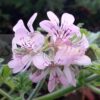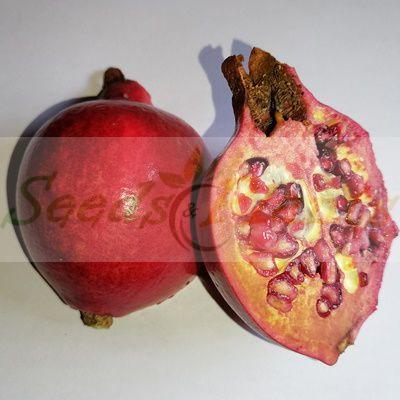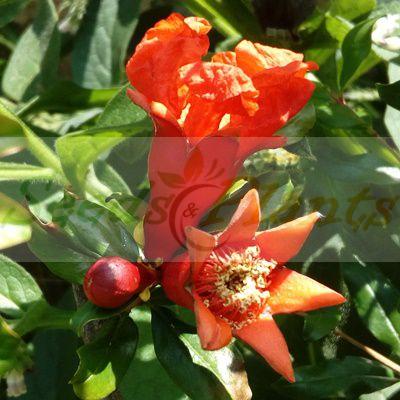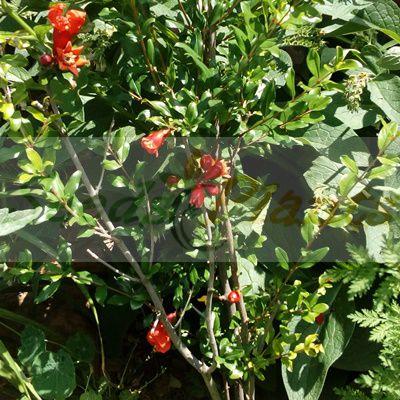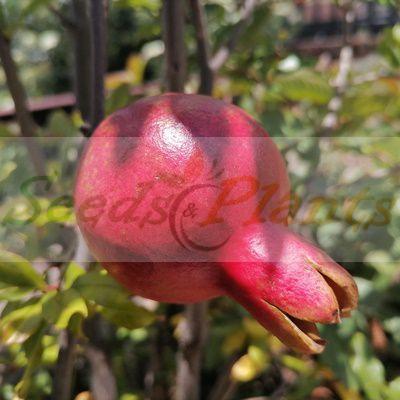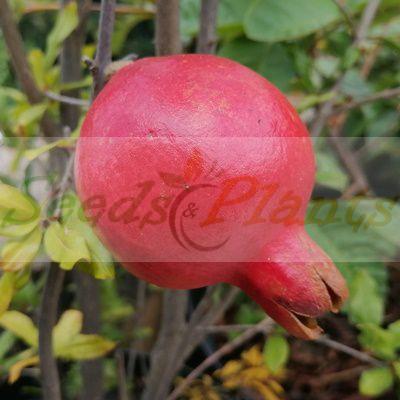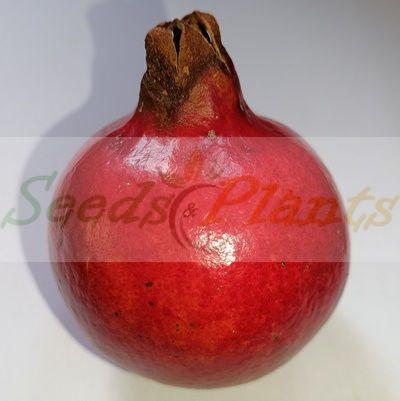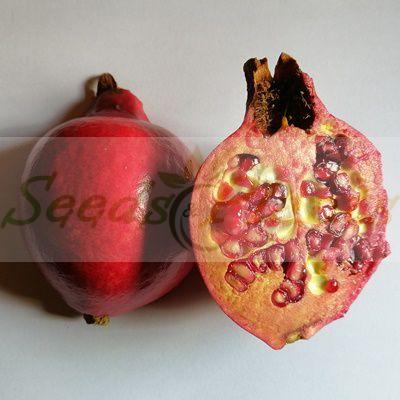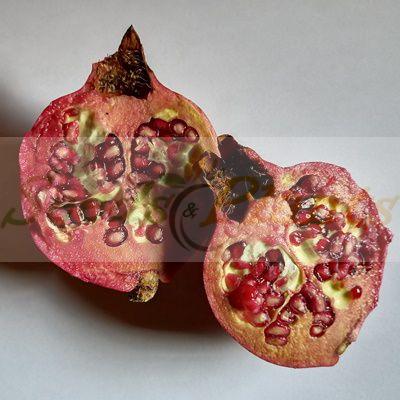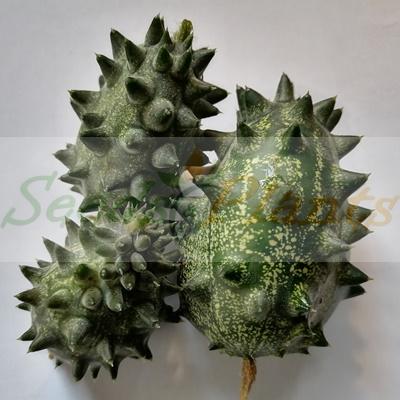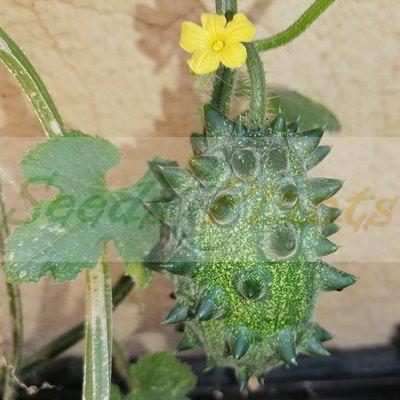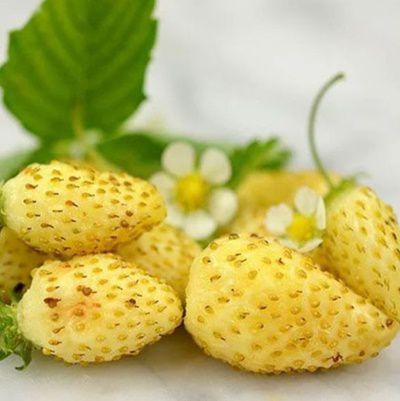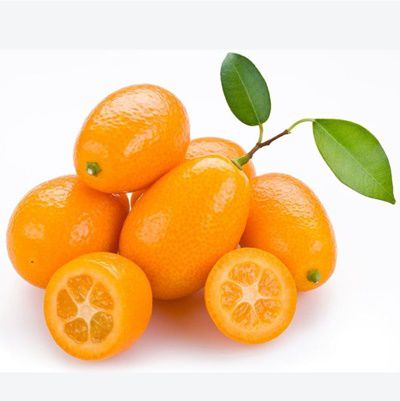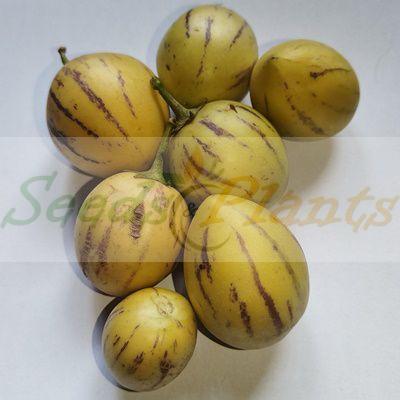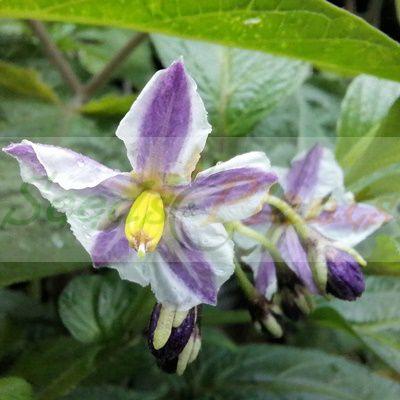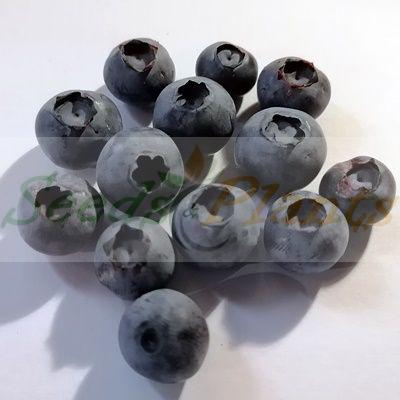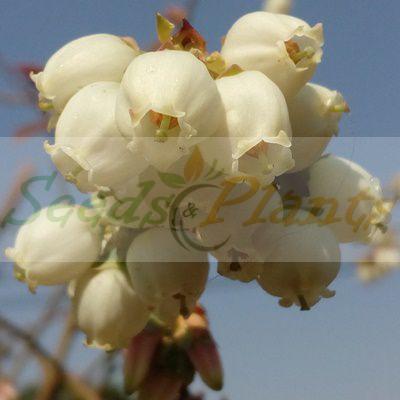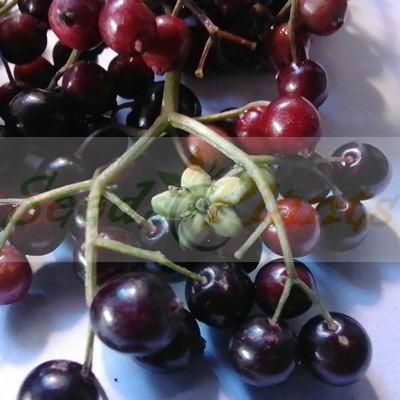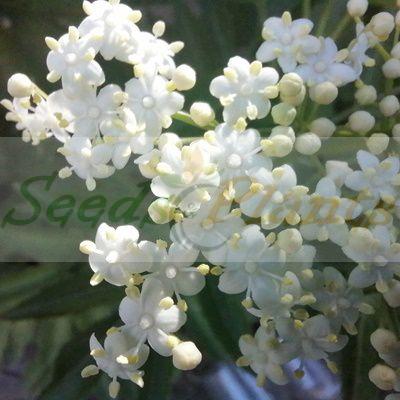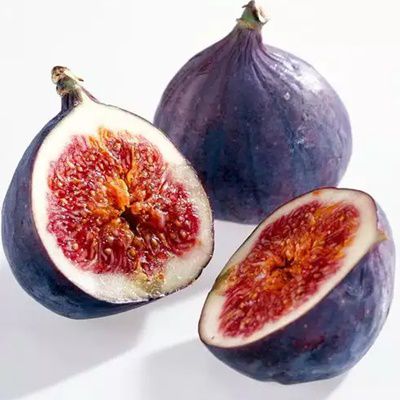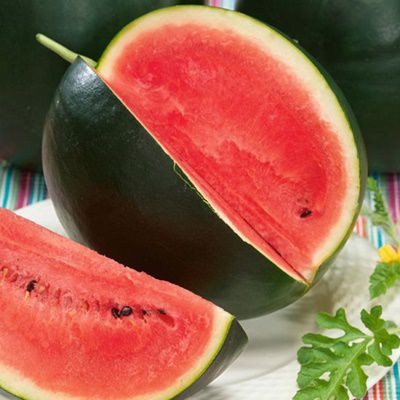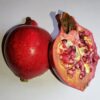🍒 Fruit Quick Facts
Fruit Info
- 🌍 Origin / Region: Middle East, South Asia
- 🍽️ Culinary Use: Desserts, Garnish, Jams and Jellies, Juices and Syrups, Raw Eating
- 🥗 Edible Part: Arils, Seed
- 😋 Flavor Profile: Sweet-tart
Growth Traits
- 🌱 Life Cycle: Perennial
- 🌾 Plant Type: Shrub, Tree
- 🔁 Fruiting Needs: Needs Only 1 Plant
- 🪴 Growth Habit: Bushy, Compact, Upright
- 🌸 Flower Color: Orange-red
- 🌿 Foliage Type: Deciduous
- 📏 Mature Height: 1-3m
- 🦋 Pollinator Method: Attracts Bees, Attracts Hoverflies, Attracts Hummingbirds, Self-pollinating
Growing Requirements
- 🌞 Sun Exposure: Full Sun
- 💧 Water Needs: Avoid Overwatering, Moderate Water
- ☀️ Growing Conditions: Cold Tolerant, Drought Tolerant, Heat Tolerant, Moderate Frost Tolerance
- 🟤 Soil Preference: Fertile, Tolerant of most soils, Well-Drained
Pomegranate Pazz – 5 Seeds
(Punica granatum)
R30.00
This very productive soft seeded cultivar produces large fruit with a dark red glossy skin when fully ripe.
Seed Type: Organic – Harvested from our own plants.
Indoor Sowing: Mid Winter.
Direct Sowing: Spring.
In stock
🍒 Fruit Quick Facts
Fruit Info
- 🌍 Origin / Region: Middle East, South Asia
- 🍽️ Culinary Use: Desserts, Garnish, Jams and Jellies, Juices and Syrups, Raw Eating
- 🥗 Edible Part: Arils, Seed
- 😋 Flavor Profile: Sweet-tart
Growth Traits
- 🌱 Life Cycle: Perennial
- 🌾 Plant Type: Shrub, Tree
- 🔁 Fruiting Needs: Needs Only 1 Plant
- 🪴 Growth Habit: Bushy, Compact, Upright
- 🌸 Flower Color: Orange-red
- 🌿 Foliage Type: Deciduous
- 📏 Mature Height: 1-3m
- 🦋 Pollinator Method: Attracts Bees, Attracts Hoverflies, Attracts Hummingbirds, Self-pollinating
Growing Requirements
- 🌞 Sun Exposure: Full Sun
- 💧 Water Needs: Avoid Overwatering, Moderate Water
- ☀️ Growing Conditions: Cold Tolerant, Drought Tolerant, Heat Tolerant, Moderate Frost Tolerance
- 🟤 Soil Preference: Fertile, Tolerant of most soils, Well-Drained
Pomegranate Pazz (Punica granatum) Seeds. This very productive soft seeded cultivar produces large fruit with a dark red glossy skin when fully ripe. The arils have a dark, rich flavor and are very juicy. The tree grows to a height of about 3m with an upright growth habit.
The pomegranate, botanical name Punica granatum, is a fruit-bearing deciduous shrub or small tree in the family Lythraceae. The name pomegranate derives from the French word pomegranate or seeded apple. They are believed to have originated in Iran and brought to Egypt in 1600 BC, where it was not only revered as an important food source but was also widely used for its medicinal value.
Pomegranate Medicinal Benefits
- Pomegranate is a great source of ellagic acid, an antioxidant and punicic acid, an omega 5 polyunsaturated fatty acid which is highly beneficial for cell regeneration and proliferation.
- The juice of this fruit is an exceptional source of vitamin A, C and E and minerals such as calcium, phosphorous, potassium, iron, folic acid, niacin, thiamin, folates and riboflavin.
Growing Pomegranate Pazz
Indoor Sowing: Mid Winter.
Direct Sowing: Spring.
- You can start Pomegranate seeds indoors over the winter and then plant them outside in the spring after the last threat of frost. Alternatively you can direct sow the seeds in Spring.
- Fill a small pot or a seed starting tray with potting soil.
- Plant 1 seed per cell or per pot. Place the seed on top of the moistened potting soil and cover with a layer of soil.
- Place your pot or tray in a warm, sunny spot and make sure to keep the soil moist, but not not soaking wet, until germination.
- For added humidity and warmth during winter, you can cover the pot loosely with a clear plastic bag or a dome, until the seeds have sprouted.
- Germination takes about 2 months.
- When the weather warms in spring, you can harden off the plants, before moving them permanently outdoors.
- Pomegranates are drought-tolerant, and can be grown in dry areas with either a Mediterranean winter rainfall climate or in summer rainfall climates.
- In wetter areas, they can be prone to root decay from fungal diseases.
- They can be tolerant of moderate frost, down to about −12 °C.
Can this plant be grown as a shrub or a tree?
Pomegranate Pazz can be maintained as a shrub with pruning, or allowed to grow into a small tree depending on growing conditions.
Can this plant be used for culinary purposes?
Pomegranate Pazz is traditionally used for culinary purposes such as desserts and garnish.
Disclaimer
Medicinal Information:
All medicinal information on this website is for educational and informational purposes only and may not be construed as medical advice. The information is not intended to replace medical advice or treatment offered by healthcare professionals.
Seeds, Plants, Plant Cuttings, Geophytes and Dried Herbs:
In some countries and provinces, certain plants are deemed as invasive and are not allowed to be planted at all, whilst some plants are allowed to be grown only in certain areas or provinces. The onus is on you as the buyer to familiarize yourself with the regulations pertaining to your location, before purchasing any of our seeds, plants, plant cuttings, geophytes or dried herbs. We will not be held liable, should you purchase any seeds, plants, plant cuttings, geophytes or dried herbs. from us which are prohibited in your country or province.

